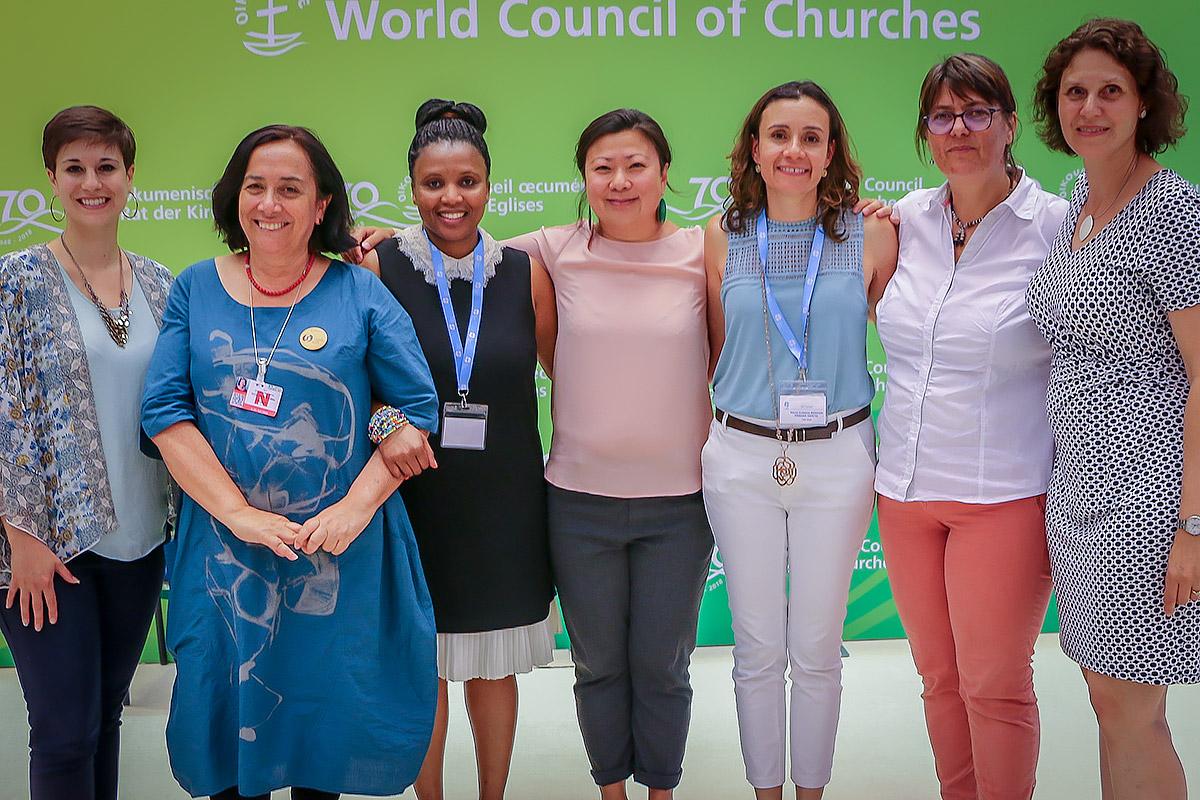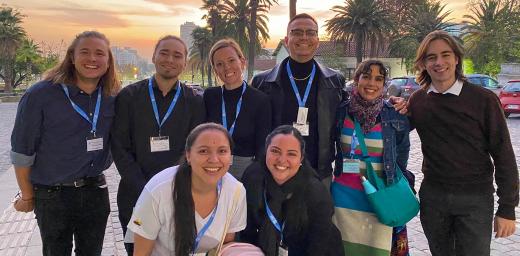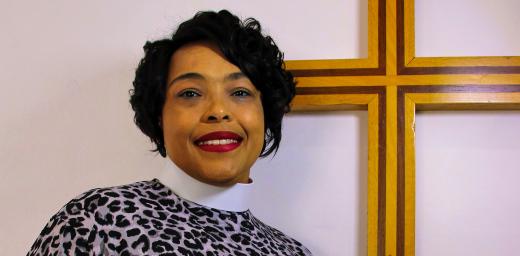“Cooperation is a strength and a powerful signal”

Steering committee of the Womenâs human rights advocacy training for faith-based organizations. Photo: LWF/George Arende
Partnership welcomed between FBOs and UN on women’s rights
(LWI) - Lutheran World Federation (LWF) General Secretary Rev. Dr Martin Junge has said faith-based organizations and the UN’s committee on the elimination of discrimination against women (CEDAW) are jointly committed to implement work on the sustainable development goals. Joint action is vital if the goals are to be realized, he said.
He was speaking at a dinner of members of the committee and participants of the Women’s Human Rights Advocacy Training for Faith-based Organizations. The training was jointly led by five ecumenical partners: the LWF, the World Council of Churches, Church of Sweden, FinnChurchAid and Mission 21.
Rev. Junge said interaction with CEDAW would help the joint work of faith-based organizations and the UN in implementing the sustainable development goals, the fifth of which is gender equality.
“The presence of the CEDAW committee is very important. It breaks new ground in view of the partnership we are invited to build as we jointly commit to implement work around the sustainable development goals. It gives great impulse to a dialogue between faith-based organizations and the UN system, which has gained in prominence lately and which I believe is crucial also for us as FBOs.”
LWF Program Assistant for Women in Church and Society, Cristina Rendón, echoed the sentiment.
"We appreciate the recognition the CEDAW committee has shown to this collective effort, since the partners have been able to sharpen the advocacy training program in a meaningful way, and respond with concrete advocacy tools to the major challenges faced by our churches and partners with regards to women’s human rights.”
Through political instruments, like the UN system, we can connect the local with the global in our work for gender justice.
Rev. Junge said affirming human rights and gender justice was important for faith based organizations. “We are saying no to violence and discrimination without any “but” or “maybe”. Our religious texts are a source of inspiration for just relationships. Through political instruments, like the UN system, we can connect the local with the global in our work for gender justice.”
“Cooperation is a strength we add”
The annual advocacy training, being held at the Ecumenical Centre in Geneva, has brought together nearly 50 participants from 30 countries.
Rev. Junge expressed his appreciation for the partnership between the Lutheran World Federation, the World Council of Churches, Church of Sweden, Finn Church Aid and Mission 21, which jointly organized the training.
“Cooperation is not a waste of time, but a strength we add – and maybe also a powerful signal we send.”
Confront governments
CEDAW committee member Hilary Gbedemah, a Ghanaian human rights expert, told the gathering that faith communities needed to be aware of their strength when confronting the lack of goodwill on the part of governments to engage with faith communities on human rights issues.
“Endeavor to be on the same page, there is no difference between human rights and what faith communities teach,” she said.
She offered biblical meaning to the articles of the Convention on the Elimination of all forms of Discrimination against Women. “We are all looking for the dignity of human beings, the love and advancement of human beings, where human beings are not suppressed,” she stressed.
On July 6, the last day of training, participants attended the 70th session of the CEDAW committee at the United Nations offices in Geneva.





